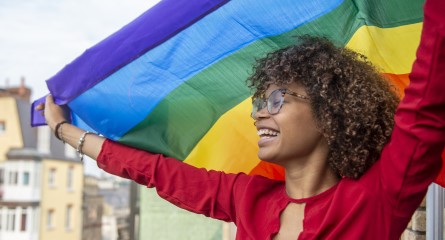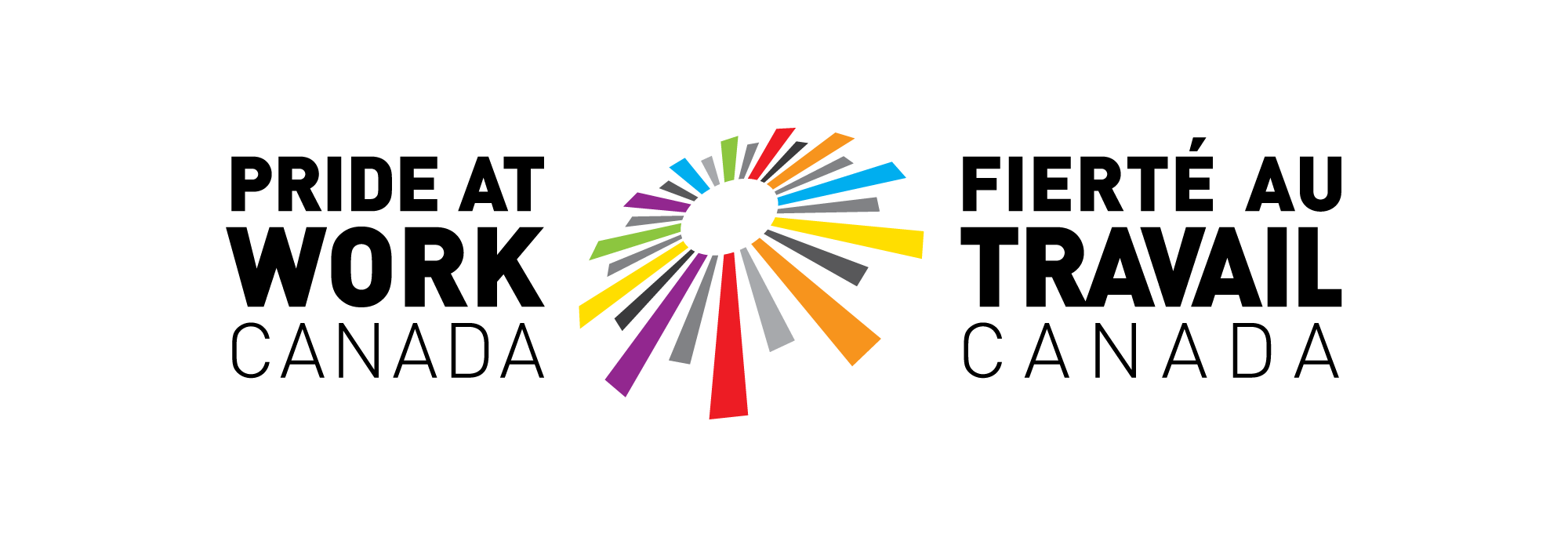Special report: Cultivating 2SLGBTQIA+ health in the workplace
The stories in this special report encourage you to consider how your employee benefits programs and company policies can support staff members from all backgrounds, genders, and identities.

Chapter 1: Creating a culture of 2SLGBTQIA+ inclusivity: A guide for employers
Explore expert recommendations for fostering and sustaining a 2SLGBTQIA+ inclusive workplace culture in this comprehensive guide for employers.

Chapter 2: The importance of gender-affirming care in the workplace
Gender-affirming care can play a crucial role in creating a more inclusive workplace. Explore the impact of comprehensive coverage, mental health support, workplace policies, and social affirmation in supporting the needs of trans and nonbinary employees.

Chapter 3: Inclusive policies to support families in the workplace
Discover the importance of inclusive family policies in the workplace and consider strategies to support diverse family structures and reduce discrimination.
Introducing our report:
By Christopher Walker, Chief Compliance Officer, Wealth and Asset Management, Canada
Christopher is a member of the 2SLGBTQIA+ community and has been an executive sponsor for Manulife’s PROUD employee resource group.

Every step towards safety and equality counts
Today, many workplaces are implementing programs that encourage a culture of diversity, equity, and inclusion (DEI) across all aspects of their organizations. But at the same time, many are also finding it’s a process that can be easier said than done. In fact, if you’re struggling to implement a DEI program that meets the needs of all your employees, you’re not alone. The journey to build a culture in which all people, including those from marginalized communities, feel equal, safe, respected, and valued, is a long and thoughtful process that never truly ends.
As the former executive sponsor for Manulife’s PROUD employee resource group, and as a member of the 2SLGBTQIA+ community, I’ve been involved in empowering my peers to shape our organization’s DEI journey. It has been a privilege to advocate on behalf of both my current colleagues and those who will follow us. Thanks to the commitment of leadership at Manulife, and the passion and compassion of every individual employee throughout our global organization, we’ve come a long way. But make no mistake, there’s still a lot of work to be done.
The stories in this special report encourage you to consider how your employee benefits programs and company policies can support staff members from all backgrounds, genders, and identities. Some of the topics discussed might be familiar. Some will be new. In all cases, we’ve included the perspectives of experts, including our own staff members, our medical director Cleveland Clinic Canada, the Pride at Work Canada organization, and others who have first-hand, lived experiences with the issues being discussed.
Regardless of where you are in your DEI journey, the fact that you’re reading this report, thinking about your employees, and considering ways to make things better gives me great optimism for the future. Even the simplest efforts, such as encouraging your employees to include their pronouns in their email signatures or web-conference IDs, are meaningful and valued by those who feel, or have felt, marginalized or excluded. I can assure you, whether you’re making small changes or taking larger leaps, every step counts on the journey to creating a sense of safety and equality for all.
In collaboration with:
Pride at Work Canada/Fierté au travail Canada
Through dialogue, education and thought leadership, Pride at Work Canada/Fierté au travail Canada empowers Canadian employers to build workplaces that celebrate all employees regardless of gender expression, gender identity, and sexual orientation.
Pride at Work Canada offering includes a wide range of workforce training and consulting services designed to help organizations of all sizes and sectors foster diversity, equity, inclusion, and accessibility.
Pride at Work Canada’s learning, networking and community events happen across the country, advising, celebrating and connecting the most inclusive Canadian employers. They help private, public and non-profit employers to create safer, more inclusive workplaces that recognize the skills of 2SLGBTQIA+ people.
The vision Pride at Work Canada’s shares with employer members is a Canada where every individual can achieve their full potential at work, regardless of gender expression, gender identity, and sexual orientation.
Manulife is proud to have Cleveland Clinic Canada on board as Medical Director for our Group Benefits operations. Cleveland Clinic Canada has a wealth of global healthcare expertise and shares our goal to help Canadians live longer, healthier, and better lives.
Cleveland Clinic Canada participated in the creation of this special report and has shared insights and commentary throughout.
Cleveland Clinic is a nonprofit organization that has been at the forefront of modern medicine since 1921. In recent years, Cleveland Clinic has worked with progressive companies in Canada and around the world to prioritize the health and well-being of their employees, customers, and communities.
To learn more about Cleveland Clinic Canada visit clevelandclinic.ca
Glossary of terms
2SLGBTQIA+
Acronym standing for Two-Spirit, Lesbian, Gay, Bisexual, Transgender, Queer, Intersex, Asexual, and other diverse sexual orientations and gender identities. The "+" sign is used to be inclusive of other identities and expressions that may not be explicitly represented in the initial acronym.
Chosen family
A group of people who are not biologically related but have formed deep, meaningful, and supportive connections with one another. These relationships are often based on mutual care, love, and shared experiences. Chosen family can be particularly important for people who may not have strong connections with their biological relatives or who have experienced rejection from their family of origin.
Covering
The process of downplaying or minimizing aspects of one's identity to conform to societal expectations or norms. This may involve suppressing or altering certain behaviors, appearances, or expressions to mitigate the visibility of 2SLGBTQIA+ identities in various social or professional settings.
Deadnaming
The act of referring to a person by their birth name, legal name, or former name, which they no longer use or identify with. This can be hurtful and invalidating to the individual's gender identity and is considered disrespectful.
Employee Resource Group (ERG)
A voluntary, employee-led group within a company or organization that is formed around a common dimension of diversity, such as race, ethnicity, gender, sexual orientation, or other shared identities or interests.
Gender expression
The external manifestation of an individual's gender identity, often through behaviour, clothing, hairstyle, voice, or other aspects of appearance and presentation. It includes how a person communicates their gender to others and can be influenced by cultural, societal, and personal factors.
Genderfluid
A term used to describe people whose gender identity is not fixed and may change or fluctuate over time. Genderfluid individuals may experience different gender identities at different times, and their gender expression may vary accordingly.
Groupthink
A psychological phenomenon in which a group of people prioritize harmony and consensus over critical thinking and independent analysis.
Non-binary
People whose gender identity does not exclusively align with the categories of male or female. Non-binary individuals may experience their gender identity as falling outside the traditional binary concept of gender, and may identify as a combination of genders, as neither exclusively male nor female, or as a gender entirely distinct from the traditional male and female categories.
Trans(gender)
An umbrella term that describes people whose gender identity differs from the sex they were assigned at birth. It includes but is not limited to people who identify as transgender, transsexual, non-binary or gender non-conforming (gender variant or genderqueer).
In Canada, trans is most often used by the community rather than the full word, transgender.
Unconscious bias
The automatic, ingrained, and often unintentional attitudes, stereotypes, or beliefs that affect an individual's understanding, actions, and decisions in an unconscious manner.
Follow this link for a glossary of terms developed by The 519, which is a City of Toronto agency committed to the health, happiness and full participation of 2SLGBTQ+ communities.
With this report, we’re giving employers and their teams information they can use to make meaningful organizational health improvements. We're also building a new digital experience in partnership with Canadian tech scale up League, and collaborating with Aeroplan to offer a rewards program that offers points for health and benefits-related activities. Together these offerings show how we’re striving to be a true health partner for the Canadians we serve.

